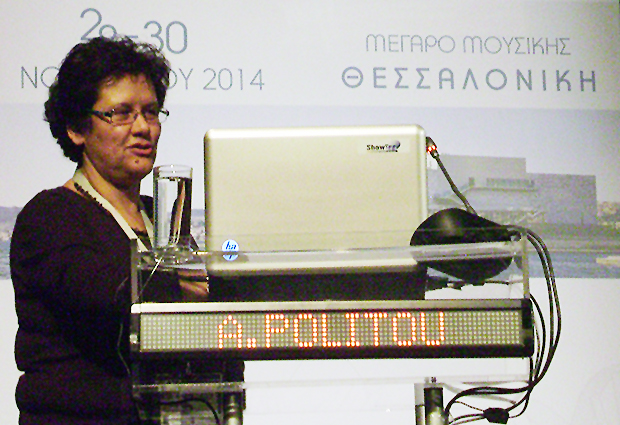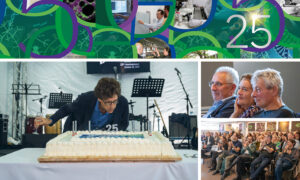
EMBL, its alumni and Greece
To coincide with EMBL’s 40th anniversary, alumni dedicated their 8th annual meeting in Greece to promoting EMBL at the country’s principal life science conference, the annual Congress of the Hellenic Society of Biochemistry and Molecular Biology (HSBMB), attended by almost 1000 life scientists annually.

The HSBMB board – including alumni Dimitris Kletsas and George Simos – agreed to dedicate a session to EMBL on day two of the programme, following the suggestion of the alumni network in Greece, and in particular EMBL Alumni Association board member Anastasia Politou, now Associate Professor at Ioannina Medical School, and Simos, now Professor at the University of Thessaly School of Medicine.
The session, entitled ‘EMBL, its alumni and Greece: Resources and Opportunities’, showcased the scientific impact of EMBL alumni on life science in Greece, be it introducing new research directions, establishing state-of-the-art facilities, training, generating funding, publishing, or engaging in societies and events. It also focused on the resources and opportunities available at the Laboratory, with talks by Head of EMBL Core Facilities Rainer Pepperkok, and group leader Nassos Typas. A concluding panel discussion looked at EMBL and EMBO’s roles and contributions to molecular biology in Greece, with candid examples presented by the alumni panel members.
Such meetings, that bridge the gap between EMBL’s past and the present, will only help both sides.
More than 300 conference participants, mostly young students, attended the session and contributed to a lively discussion. A hot topic was how young scientists could harness training opportunities and facilities at EMBL through internships – this is a high priority for the alumni network in Greece, and one which Politou looks forward to investigating further.
“This was a really valuable community effort – I hope EMBL alumni continue to organise similar events regularly in the future,” says Rainer Pepperkok. “There was a great mix of alumni from throughout EMBL’s 40 years, all sharing fond memories as well as excitement about science and the future,” adds Nassos Typas. “Such meetings, that bridge the gap between EMBL’s past and the present, will only help both sides.”
“This was the perfect context to present and discuss a bird’s-eye-view of EMBL’s impact on the development of life sciences in Greece, and to promote personal connections with Greece’s scientific community, especially young scientists,” concludes Politou. “The lively interactions and enthusiastic feedback affirm our intentions to organise similar events in the future.”


